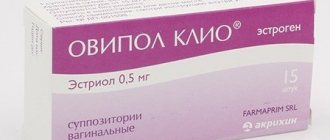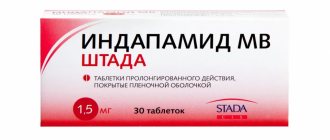Home | About us | Delivery | Advertisers | Login | Registration
The pharmacy is closed on Sundays and holidays.
- Medicines
- dietary supplementsVitamins
- Categories from A to Z
- Brands from A to Z
- Products from A to Z
- Medical equipment
- beauty
- Child
- Care
- Honey products appointments
- Herbs and herbal teas
- Medical nutrition
- Journey
- Making medicinesStock
Pharmacy online is the best pharmacy in Almaty, delivering medicines to Almaty. An online pharmacy or online pharmacy provides the following types of services: delivery of medicines, medicines to your home. Online pharmacy Almaty or online pharmacy Almaty delivers medicines to your home, as well as home delivery of medicines in Almaty.
my basket
Apteka84.kz is an online pharmacy that offers its customers medicines, medicinal and decorative cosmetics, dietary supplements, vitamins, baby food, intimate products for adults, medical equipment and thousands of other medical and cosmetic products at low prices. All data presented on the Apteka84.kz website is for informational purposes only and is not a substitute for professional medical care. Apteka84.kz strongly recommends that you carefully read the instructions for use contained in each package of medicines and other products. If you currently have any symptoms of the disease, you should seek help from a doctor. You should always tell your doctor or pharmacist about all the medicines you take. If you feel you need further help, please consult your local pharmacist or contact our GP online or by telephone.
© 2021 Pharmacy 84.
Miconazole vaginal suppositories 100 mg No. 7x1
Name
Miconazole supp vag 100 mg in container pack No. 7x1
Description
Suppositories are cylindrical-conical, white or white with a yellowish tint. The cut is allowed to have an airy and porous core and a funnel-shaped depression.
Main active ingredient
Miconazole
Release form
Suppositories
Dosage
100mg
pharmachologic effect
Antiseptics and antimicrobials for the treatment of gynecological diseases (excluding combinations with corticosteroids). Imidazole derivatives. ATX code: G01AF04.
Pharmacodynamics
Miconazole is a synthetic antifungal agent, an imidazole derivative. Has antifungal and antibacterial effects. The most sensitive to miconazole are dermatomycetes and yeast. Active against the causative agent of pityriasis versicolor (Malassezia furfur), causative agents of some dermatomycosis (Candida albicans, Trichophyton, Epidermophyton floccosum, Microsporum). Shows activity against Dimorphons fungi, Cryptococcus neoformans, Aspergillus spp., Pityrosporum, Torulopsis glabrata, Pseudallescheria boydii; some gram-positive microorganisms, including staphylococci and streptococci. The fungicidal and fungistatic effect of miconazole nitrate is due to inhibition of ergosterol biosynthesis, changes in lipid composition and cell wall permeability, which causes fungal cell death.
Pharmacokinetics
When administered intravaginally, miconazole nitrate is absorbed slightly and is not detected in plasma.
Indications for use
vulvovaginal candidiasis; superinfection caused by gram-positive microorganisms. If you need more information about your condition, ask your doctor for advice.
Directions for use and doses
The use of this medicine is possible only after consultation with a doctor! Do not stop taking MICONAZOLE without first consulting your doctor! If you have any doubts or questions, contact your healthcare provider. For vaginal use. 1 suppository (100 mg) once a day, in the evening before bedtime for 7-14 days, or one suppository in the morning and evening for 7 days. The suppository is released from the contour packaging, having previously cut the film along the contour of the suppository using scissors, and inserted as deep as possible into the vagina, in a lying position.
Use during pregnancy and lactation
If you are pregnant or breastfeeding, think you may be pregnant, or think you might be pregnant, tell your doctor. The drug is contraindicated for use in the first trimester of pregnancy. In the second and third trimesters of pregnancy, the drug can be used only in cases where the expected benefit to the woman outweighs the potential risk to the fetus. Caution should be exercised when using the drug during lactation.
Precautionary measures
Prescribe with caution for diabetes mellitus and microcirculation disorders. The use of suppositories may reduce the reliability of mechanical contraception (condoms, vaginal diaphragms) due to the interaction of the suppository base with latex or rubber. If a sexual partner has an infection, appropriate treatment should be prescribed. The appearance of allergic reactions or lack of clinical improvement within 7 days requires discontinuation of treatment and additional examination. If necessary, the drug can be removed by rinsing the vagina with boiled water. Serious hypersensitivity reactions, including anaphylaxis and angioedema, have been reported with other miconazole products. If hypersensitivity reactions or irritation occur during treatment, treatment should be discontinued. Use of the drug in children It is not recommended for use in children and adolescents under 18 years of age due to the lack of data on effectiveness and safety. Use in persons with impaired renal function: no particularities. Use in geriatric practice: no particularities.
Interaction with other drugs
If you are currently or have recently taken other medications, tell your doctor. Miconazole increases the effectiveness of indirect anticoagulants for oral administration, hypoglycemic agents, sulfonylurea derivatives, and phenytoin. Rifampicin weakens the therapeutic effect of miconazole, and their combined use should be avoided. When used simultaneously with carbamazepine, the risk of side effects increases. When used simultaneously with astemizole, cisapride, terfenadine, the risk of developing arrhythmias increases. Due to the limited systemic availability of miconazole after vaginal administration, clinically significant interactions occur very rarely. Therapeutic effects and adverse reactions of drugs metabolized by CYP2C9 (for example, oral hypoglycemic drugs and phenytoin), as well as CYP3A4 (for example, HMG-CoA reductases, such as simvastatin and lovastatin, and calcium channel blockers, such as dihydropyridines and verapamil), with co-administration with miconazole may be enhanced, so caution should be exercised.
Contraindications
Hypersensitivity to miconazole and other imidazole derivatives; severe liver dysfunction; first trimester of pregnancy; age up to 18 years, use for virgins.
Compound
1 suppository contains: active substance: miconazole nitrate 100 mg; excipients: solid fat.
Overdose
Due to the low absorption of the drug, an overdose with intravaginal use is unlikely. In case of accidental ingestion, no problems are expected. If a large amount of the drug is swallowed, gastric lavage is performed if necessary.
Adverse reactions
If side effects occur, tell your doctor. This applies to all possible side effects, including those not described in this leaflet. MedDRA frequency convention Very common (?1/10); frequent (?1/100,
Storage conditions
Store in a dry place, protected from light, at a temperature not exceeding 25 °C. Do not freeze.
Miconazole
Name: Miconazole (Mlconazole) Pharmacological action: Acts on dermatomyetes (a group of parasitic fungi that cause skin diseases in humans), yeast and other pathogenic fungi (parasitic fungi that cause human disease), also has a bactericidal (bacteria-destroying) effect on some gram-positive bacteria .
Indications for use: Prescribed for superficial and systemic mycoses (diseases caused by parasitic fungi), dermatomycosis (skin fungal diseases) and onychomycosis (fungal disease of the nails) caused by blastomycetes (parasitic fungi belonging to the class of imperfect fungi), mycosis of the scalp ; vaginal mycosis; blastomycetosis (a human disease caused by parasitic fungi) of the oral cavity and gastrointestinal tract, genitourinary organs, fungal balanitis (inflammation of the skin of the glans penis caused by a parasitic fungus). It can be used prophylactically to prevent fungal infections with reduced immunological resistance of the body (decreased resistance of the body to pathogenic agents).
Method of administration: Tablets are prescribed orally (alone or in combination with intravenous administration) for the treatment and prevention of mycoses of the gastrointestinal tract. Adults are prescribed 0.25 g (250 mg = 1 tablet) 4 times a day, children - at the rate of 20 mg per 1 kg of body weight per day. The gel is prescribed for the treatment and prevention of mycoses of the oral cavity and gastrointestinal tract. Adults and children are prescribed 1/2 dosage spoon (1 spoon with a capacity of 5 ml contains 124 mg of miconazole) 4 times a day; for young children - 1/4 spoon 4 times a day. It is recommended not to swallow the gel immediately, but to keep it in the mouth for as long as possible. Treatment with miconazole should be continued for at least 1 week. after the symptoms of the disease disappear. Miconazole (nitrate) is used topically for fungal infections of the skin and nails. For skin diseases, apply a small amount of liquid to the affected areas and rub it in until completely absorbed. The therapeutic effect usually occurs within 2-6 weeks. daily use of the drug. Treatment should continue for at least a week after the signs of the disease disappear. For onychomycosis, the liquid is applied to the affected nails and surrounding skin and covered with a bandage. The treatment is carried out for a long time - until a new nail plate grows. The alcohol solution is applied using the supplied brush to the affected nails 2 times a day. Miconazole is administered intravenously for systemic mycoses (diseases of internal organs caused by pathogenic fungi). The daily dose is usually 10 mg/kg (600 mg), but can be increased (if well tolerated) to 30 mg/kg. Administer simultaneously (no more than 600 mg per injection) slowly - over 30-60 minutes; can be administered dropwise in several doses. Intravenous administration must be done with caution. Before intravenous administration, the ampoule solution is diluted with isotonic sodium chloride solution. Rapid administration can lead to heart rhythm disturbances and vomiting. For vaginal mycosis, once a day before bedtime, 1 vaginal suppository is inserted deep into the vagina. After the symptoms disappear, continue treatment for another 14 days.
Side effects: When miconazole is taken orally, nausea, diarrhea (diarrhea), and allergic phenomena are possible; when applied to the skin - local irritation, allergic reactions. After intravenous administration, chills, dizziness, diarrhea, and skin rash are possible. At the injection site, with repeated administration, thrombophlebitis (inflammation of the vein wall with its blockage) may develop.
Contraindications: Oral (by mouth) and intravenous use of miconazole is contraindicated during pregnancy and congenital liver dysfunction. Miconazole potentiates (strengthens) the effect of coumarin anticoagulants, oral hypoglycemic drugs, and diphenine.
Release form: Tablets containing 250 mg of miconazole, in a package of 10 pieces; gel for oral (by mouth) use, containing 20 mg of miconazole per 1 g, in tubes of 40 g; liquid for external use containing 20 mg of miconazole nitrate per 1 g, in aerosol packaging of 30 g; an alcohol solution containing 20 mg of miconazole in 1 ml, in 30 ml bottles (with a brush attached); 1% solution in ampoules of 20 ml for intravenous administration in a package of 5 ampoules. The vaginal dosage form of miconazole is “Gynodactarin” - vaginal suppositories of 0.1 g in packs of 8 and 15 pieces.
Storage conditions: All dosage forms of miconazole are stored in a place protected from light.
Synonyms: Doctarin, Aflorix, Albistat, Andergin, Daktar, Dermonistat, Drinax, Funginazole, Mesolitan, Mikatin, Mikogin, Mikonal, Mikostat, Mrnistat, Neomicol, Surolan, Gino-Daktarin.
Composition: (+)-1-[2,4-Dichloro-b-[(2,4-dichlorobenzyl)oxy]-phenethyl] imidazole. Tablets contain 250 mg of miconazole; gel for oral (by mouth) use contains 20 mg of miconazole per 1 g; liquid for external use contains 20 mg of miconazole nitrate per 1 g; The alcohol solution contains 20 mg of miconazole in 1 ml.
Attention! The description of the drug " Miconazole " on this page is a simplified and expanded version of the official instructions for use. Before purchasing or using the drug, you should consult your doctor and read the instructions approved by the manufacturer. Information about the drug is provided for informational purposes only and should not be used as a guide to self-medication. Only a doctor can decide to prescribe the drug, as well as determine the dose and methods of its use.


